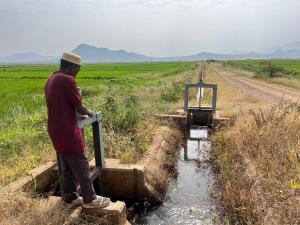Test project Pesticides and Protection Tanzania
testing out building a project
Conflictual Collaboration: Citizen Science and the Governance of Radioactive Contamination after the Fukushima Nuclear Disaster
In the aftermath of the 2011 Fukushima nuclear disaster, citizen scientists collectively tracked and monitored residual radioactivity in Japan, legitimizing alternative views to an official assessm
Radioactive Performances: Teaching about Radiation after the Fukushima Nuclear Disaster
Following the 2011 Fukushima nuclear disaster and its release of radioac- tive contamination, the Japanese state put into motion risk communica- tion strategies to explain the danger of radiation e
pece_annotation_1472845232
tamar.rogoszinskiWhile this study does not address vulnerable populations, per say, it does study cancer in patients under the age of 20, which can be considered a vulnerable population as they were young when the disaster occurred.
pece_annotation_1480343816
tamar.rogoszinskiThis article discussed gender-based violence in the context of humanitarianism. It focuses on rape and assault and whether or not they should be treated by humanitarian efforts as other issues are. The author provides pros and cons to humanitarian intervention and the implications of each.
pece_annotation_1473449491
tamar.rogoszinskiPaul Farmer has used this paper in later works and has been published in various journals and books.
pece_annotation_1480349009
tamar.rogoszinskiThis report includes Recommendations towards the end that provides an analysis of the data collected and ways in which these can be improved and fixed in the community. Some include that insurance companies should cover transgender-related health care, ways to end violence against this community, that medical providers should avoid bias and provide proper, equal care, and that more data needs to be collected and obtained to continue in the fight against discrimination.
pece_annotation_1474166698
tamar.rogoszinskiThe article cites various studies and uses the experiences of organizations in order to help plan for the future. The authors use the WHO and the CDC as these examples of experience. They draw upon the AIDS crisis as an example of global outreach and of a public health crisis. Innovation in science is discussed and ongoing research experiments. DOTS (Directly-Observed Treatment, Short Term) program is discussed as well and its shortcomings in dealing with TB.



the rice irrigation scheme, Pare Valley, Tanzania